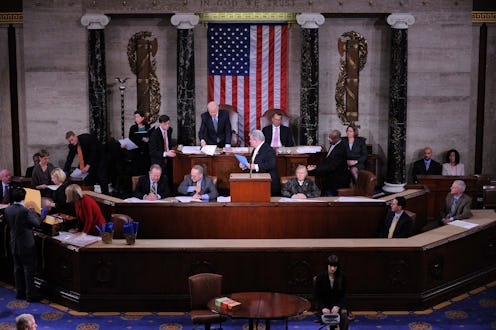News
How To Argue In Favor Of The Electoral College
As the last emotionally ravaging presidential debate of the 2016 election cycle took place on Wednesday night and election night approaches, many people are discussing how to defend the electoral college system. Or conversely, why they think the electoral college system should be dismantled and exchanged for a pure tally of individual votes — a system change that many believe would put the winner of the popular vote in office. While both sides of the discussion carry valid and considerable points, there are a handful of logical reasons the electoral college remains in place that can easily be argued.
One of the most consistent arguments for the electoral college is the fact that the winner-takes-all method carried out by most states (every state except Nebraska and Maine), essentially awards each state's electoral votes based on whichever candidate wins the popular vote for that state. In cases where no candidate has over 50 percent of the votes, due to a split between the Democratic and Republican candidates as well as third-party candidates, the candidate with the largest plurality of votes still secures the electoral college for that state. Considering the fact that only four presidents in U.S. history have lost the popular vote and won presidency, it's easily arguable that the electoral system does in fact help accelerate the winner of the popular vote into office. Thus, the ways in which the winner-takes-all method favors the popular votes combats the counter-argument that the electoral college undermines democracy and the consensus of individual voters.
Another argument for the continued use of the electoral college is that it gives the candidates more incentive to appeal to voters across different regions, rather than simply resting on the laurels of blue or red states with large populations. While campaigning for national appeal does in face force candidates to many times compromise or soften their policies in an attempt to breach political gaps, this is arguably a necessary good, since political compromise is the only hope for a semblance of unity in a country as large as the United States.
Perhaps one of the most obvious yet valid arguments for keeping the electoral college is simply election efficiency as well as consistently preventing run-off elections. The 538 electors provide an even, clean count for our election. With these arguments to back it, the electoral college remains firmly in tact, at least for now.
